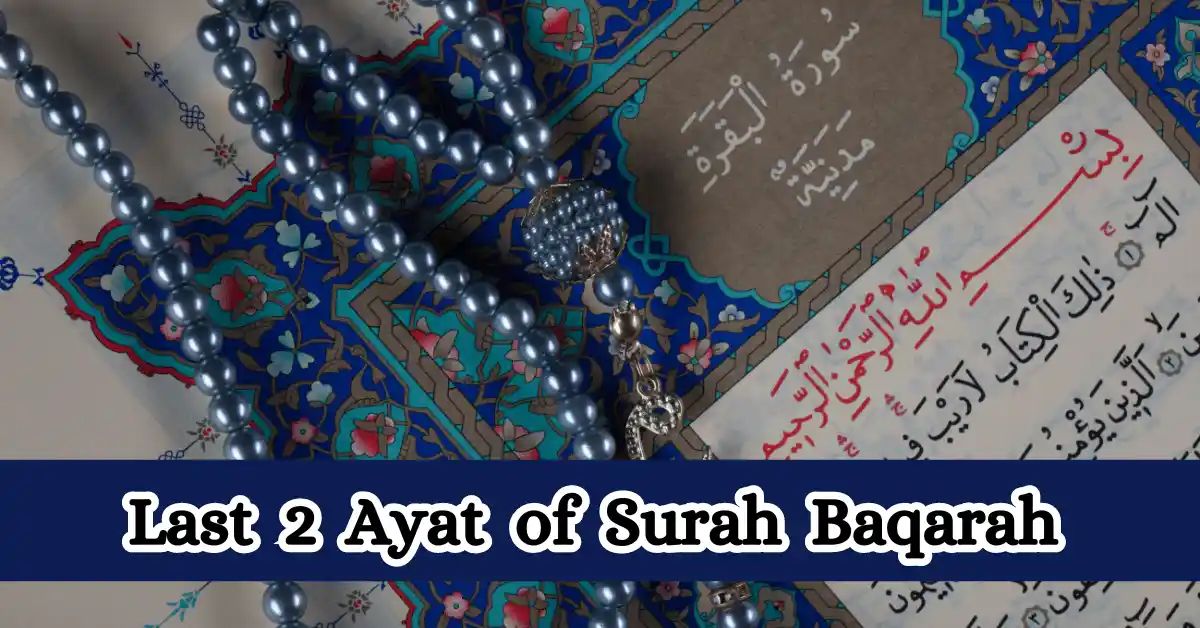Have you ever discovered the profound meaning behind the last 2 Ayat of Surah Baqarah? In this enlightening guide, we’ll journey to understand these ayats’ significance and relevance in our lives as Muslims. Let’s uncover the spiritual treasures hidden within these verses and reflect on their timeless wisdom.
Understanding the Context: Surah Baqarah and its Themes
To truly appreciate the essence of the last two ayat of Surah Baqarah, it’s essential to grasp the broader context of this Surah. Surah Baqarah, the second chapter of the Quran, is the longest Surah in the holy book and covers a wide range of topics, including guidance for personal conduct, societal laws, and spiritual principles. It serves as a comprehensive guide for believers, addressing individual and collective responsibilities.
The Theme of Surah Baqarah
Surah Baqarah addresses various aspects of faith, morality, and governance, providing a holistic framework for leading a righteous life by Islamic principles. It emphasizes the importance of obedience to Allah, adherence to divine guidance, and pursuing justice and righteousness in all aspects of life.
Exploring the Last 2 Ayat of Surah Baqarah: A Source of Divine Blessings
The last two Ayat of Surah Baqarah are very important verses in the Quran. Surah Baqarah is the longest Surah of the Quran and Itani surah. Allama Wahidi Nisha Puri has written that Ikrimah has stated that the first Surah to be revealed in Madinah is Surah Baqarah.
Surah Baqarah has 286 verses, 6,880 words, and 25,575 letters. So, let us know these important verses with translation and explanation.
Surah Baqarah Verse 285

Translation
“The Messenger (peace and blessings of Allaah be upon him) believed in what was revealed to him from his Lord, and so did the believers.
They believe in His angels, His books, and His messengers. We have heard (your command) and obeyed, our Lord! We seek Your forgiveness, and to You is our return.”
Commentary
Even at the beginning of this Surah, Allah describes the attributes of the believers: They obey every command without looking, perform prayers regularly, And spend their most beloved wealth on Allah’s command. Believers are also mentioned at the end of the Surah.
In this verse, it is mentioned first to believe in Allah because every rational person first argues for the existence of the Creator, then it is noted to believe in the angels.
So they are mentioned in the second degree. Then there is the remembrance of believing in the books because the books are the revelations that the angels convey from Allah to the prophets I mentioned.
Then there is the mention of faith in the apostles, and they say that we do not differentiate between any of these apostles in believing, just as the Jews and the Christians differed in that some believed in the prophets and some did not.
Surah Baqarah Verse 286

Translation
“He does not afflict any soul beyond its capacity, for the good it has earned is its reward, and for the sin it has earned is its punishment, O our Lord! If we forget or make a mistake, do not seize us, our Lord. And do not burden us as you have burdened those before us.
Our Lord! And put not on us such a burden as we cannot bear, and forgive us, forgive us, and have mercy on us. You are our Protector, so let us overcome the disbelieving people. Give it”
Commentary
Hazrat Ibn Abbas says that when this verse is revealed, you should reveal or hide what is in your hearts, and Allah will hold you accountable. The companions said: We repent and turn away from the deeds of hands, feet, and tongue. How do you turn away from whispers? Then Jib reel brought this verse: Keep.
Hazrat Abu Dhār Ghaffari says that Hazrat Muhammad (PBUH) said: Allah Almighty has forgiven the deeds of my Ummah which are sinful, forgetful or the deeds for which they have been compelled.
Explanation in the light of the Prophetic Hadith
Allah’s reward is that He has provided His servants with the means of His mercy and forgiveness. One of them is the last verses of Surah Baqarah.
- Hazrat Muhammad (PBUH) said: Whoever recites the last two verses of Surah Baqarah at night will suffice.
- Hazrat Muhammad (PBUH) said: I have obtained these verses from the treasures of Allah. Verses like these have not been found before and will not be found later.
- Hazrat Muhammad (PBUH) has given three things in me raj: Five prayers, The last verses of Surah Baqarah, and Forgiveness of all sins for your Ummah except shirk.
- Numan ibn Bashir narrates that Shaitan cannot stay in any house where these verses are recited for three nights.
- Think about it! How our homes are deprived of goodness and goodness! They are devoid of such a great and helpful process. Now tell me, when will you start this blessed process in your home?
Frequently Asked Questions (FAQs)
Q: How can one incorporate the teachings of Surah Baqarah into their daily life?
A: Incorporating the teachings of Surah Baqarah into daily life involves studying its verses, reflecting on their meanings, and striving to implement the principles of faith, morality, and righteousness in one’s actions and interactions. It also entails seeking guidance from knowledgeable scholars and practicing patience and perseverance in adhering to Islamic values.
Q: Is there a recommended time or manner for reciting the last two ayat of Surah Baqarah?
A: While no specific time or manner is prescribed for reciting the last two ayat of Surah Baqarah, it is recommended that one recite them regularly as part of one’s daily prayers or supplications. Many believers recite these verses after performing their obligatory prayers or before going to bed, seeking Allah’s protection and blessings.
Q: What are some benefits of reciting the last two ayats of Surah Baqarah?
A: Reciting the last two ayats of Surah Baqarah brings numerous spiritual benefits, including protection from evil, forgiveness of sins, and divine blessings. It is also considered a means of seeking Allah’s guidance, mercy, and favor in all aspects of life.
